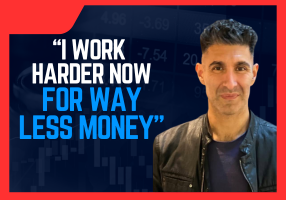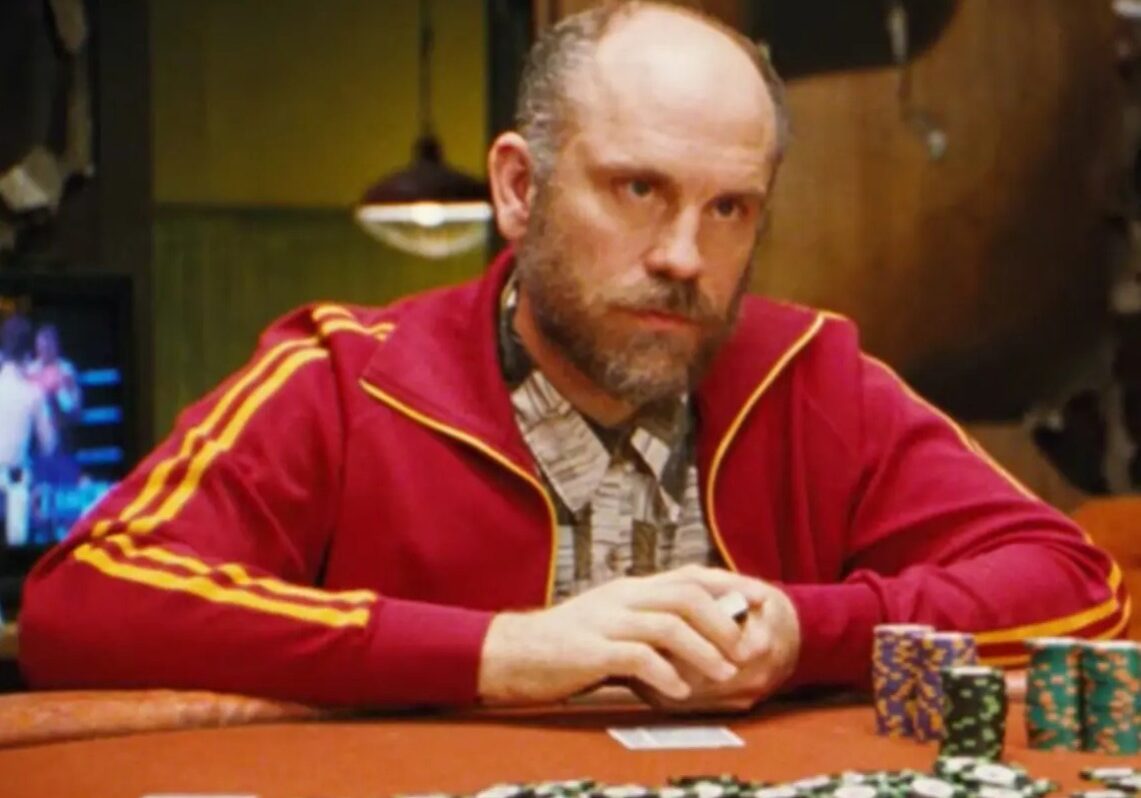I get a lot of mail. Every now and then, though, I get an email that I can't handle, that is asking questions that are so deep and so profound about what it MEANS to live in a fallen world, that is written with such keen yet unpolished first-hand observations ... that I have no choice but to publish it.
Those emails are almost always by soldiers.
There's a long tradition of the soldier/writer, going back to Xenophon and the Anabasis (March of the Ten Thousand). Xenophon wrote his chronicle 2,500 years ago, and it's as fresh and as meaningful a book as any you will read today.










I certainly don’t have the (or, probably, any of the) answers to this wrenching cri de coeur, but one thing kept echoing in my head as I read it - The Wall Street Journal’s Dan Henninger Editorial from 1993 “No Guardrails.”
I am not promoting the editorial here as either an answer to the many issues raised or as something I personally agree with in whole, but I think it could be part of the discussion and I think T.E. would find it interesting.
Here is a link: https://www.wsj.com/articles/SB122521124435776541
Ben, if T.E. doesn’t have a subscription, it is legal for you (or me, but I don’t have his email) to email the article directly to him; it isn’t legal, I’ve been told, to post it to a public site without permission (so I won’t). I’m looking forward to reading what others in our pack think about all of this.
I’ll email it directly, Mark, and thanks. Very much on point.
One big point and one little point.
The big point is that commenters shouldn’t feel compelled to make a big point about this post, or to come up with an Answer. If there’s one thing to get out of Epsilon Theory, it’s this: no one has an Answer.
But we do have a Process - Clear Eyes, Full Hearts, Can’t Lose - and that will be enough.
The little point is about Process, in particular the need to see the Metagame as part of having Clear Eyes. In my experience (and maybe it’s just that, which is why I’m posting more broadly), I find that vets tend to be poor metagame players. They’re very earnest and very direct in their business environment interactions - I would say too earnest and too direct - and it doesn’t serve them well in the larger metagame of career-building. Curious to know if anyone else would agree or disagree on this.
It appears the first soldier pulled himself out of the system while the second soldier is trying to reintegrate back in. People like the readers of Epsilon Theory are a special sort. We kinda recognize the “matrix” that makes up the fabric of society, yet we cannot bend it to our will. We can’t wish for ignorance either. Soldiers discover this through the context of war which makes it all the more challenging.
I’ve personally found that understanding more of this “matrix” that makes up the nature of humanity actually gives us freedom, but not in the traditional sense. It gives us freedom of choice because the choices we make are actually our own. We understand the consequences of our actions (as much as we can) while majority rarely does. If we have a goal in mind, it’s actually attainable in a very meaningful way through this authentic version of choice.
With this choice, I’ve personally resolved to “love my neighbor” but not in the hokey sense. Rather, I’ve resolved to love my neighbor, even in the irrationality of their humanity, even in their limitations (although, I too am not without sin, in need of forgiveness). They truly don’t know better and for many of them, they never can (biological limitations are real). But it’s okay because I love them. And when it’s time, I’ll show them a little more of “the matrix” if they want, if it helps.
When I take this resolution to the sum of the entire population, I realize that one person’s entire life can only conceivably convey one message for all of humanity to absorb. You can influence individual people very deeply whether it be your wife, your children, your close friends. But as you reach farther and farther out of your personal circle, anything you have to offer gets attenuated. This leads to feelings of insignificance, helplessness. But the reality that by understanding the “matrix”, you have one real message, one concept, one idea that can actually make the world a better place. It’s because you actually understand what needs to be done. But you only get to make one cosmic chess move in this grand universe.
So what would you be willing to spend the rest of your life telling the world, even knowing that you may fail? What is the one thing you wish your family, your friends, your enemies, even strangers knew that if they understood this one thing, all of humanity would move one step in the right direction. Once you have this single message, you can design your course of action around it.
It’s the best I’ve got. Thanks Epsilon Theory for the opportunity to contribute.
To T.E.:
Your commentary spoke volumes to me, a Navy retiree who’s a few decades further down life’s road (and much closer to journey’s end) than you are.
Here are some random reactions and thoughts.
By relentlessly searching for the voices to whom you “could assign some measure of trust” you’ve discovered one of same keys that I have. My list of trusted sources is very different from yours, but the process is the same and that’s what counts. Obviously, our lists overlap to include Ben Hunt and Rusty Guinn. Since you’re a pack member, I’ll extend trust to you and get to know some of your intellectual mentors.
Re the political, especially since the 2016 watershed: I find it more and more meaningful to focus on the local while keeping a weather eye on the global and national. I reside in a politically “progressive” corner of my home state and have spent the past couple years paying close attention to what’s happening in this small democratic laboratory. I now know the perpetrators of oppression, from both political parties, by their names and by their votes. For me, political sanity lies in the local and the specific. When action is needed, I align with fellow citizens to try to make incremental change. (Or at least, to raise our voices against unfairness or wrong-doing.) I’ve abandoned hope for a remote, abstract messiah like Senator Sanders.
Re the financial. I aspire to independence as I age. That means not doing stupid stuff with my carefully accumulated financial and real property. Ben’s explanations of game theory and narrative have been golden. As an idealist who swore to protect and defend an abstraction called the Constitution, I need his gimlet eye and unromantic version of the metagame.
JVF
Our dream when we took Epsilon Theory independent was to find voices and wisdom like Jane’s. This is solid gold.
Eric knows his “I am.” Beautiful.
I have always felt more comfortable standing on the outside of common discourse, observing in. Few of the developments I have witnessed in the world-narrative over the course of my adult life has made intrinsic sense to me, the spark of questions rather than answers. But questioning the narrative is often a lonely position. Fortunate and privileged enough to have, mostly, avoided the gyre of economic and social hardship bestowed upon many by the self-absorbed few, my despair of what we have become is more for a fear of the world my daughters will inhabit than my own. Sitting in Norway, it would be presumptuous of me to expect more than a distanced view of the deterioration of the Empire, a land I have lived in and whose people I have had a long-standing love affair with. But what happens over the pond will also shape us, as it has done for the entirety of the modern world.
These letters, as well as the totality of Ben and Rusty’s work, invokes in me a feeling of belonging and companionship. I think that in the pack I have found some of my people, albeit ones that seem staggeringly better read than myself. The goal of this ramble, and as it is early Sunday morning, I do not yet presume that my mind had a goal in commenting when it started, is perhaps nothing more than to let you know that you have a friend on a distant shore, who reads and cries and fights with you and who believes in you. And one that would happily sit down for a beer with T.E as well as you other magnificent people.
Your observation of vets is, IMHO, spot on. The ones I went to school with and have worked with have both an earnestness and directness (especially the closer in time to their military experience that they are) that is great at assigned short-term goals, but struggles with the, sadly, chess-like thinking (the metagame) needed to manage a career.
Not coming from a family of professionals, and while never having served, I was taught a similar approach of honesty and directness (“work hard, be honest, do as you are told and it will be recognized”) that it took me several years to realize would only get me a few rungs up the ladder. As with anything in life, you either learn, adapt and advance or hit your level and plateau. Former vets might be “handicapped” at first or not - those metagame impairing traits are, as noted, good at getting one up the first few rungs - but many realize the new game and adjust and learn how to play it.
But here’s the bigger ET thing about this - you can learn the metagame without giving up your honesty / without giving up who you are. Will you ever fully “fit in” to Corporate America that way - probably not. I didn’t and don’t - but you fit in on your terms and it will work. You might have to go through a few organizations or areas within an organization to find the company, manager or sleeve that will accept you on your terms, but it/they exist.
And while you might not be known as the best “company man or woman” or as a “perfect” employee, you will be respected - “he’s a bit odd, but you can trust him,” “he calls it too straight sometimes, but he gets things done.” And, lastly, and this will be the true reward - when looking for work (and who hasn’t in the last three decades in finance), you’ll find a lot of people who will go to bat for you / will put their reputations on the line because they know you won’t embarrass them / you won’t let them down with your words or deeds later. When you see that support - even from people you’ve butted heads with - you feel pretty good about how you’ve conducted yourself.
I’ll say right up front that I don’t have anyone else’s answer. I don’t know anyone else’s truth.
For me, the assumption of a social contract was also a point of great confusion. I joined the Navy, in part, to fulfill my part of it. Even in the 80s I could see the beginnings of abandonment of it by those in power, but I didn’t recognize that then. We now seem to be in headlong flight from whatever unwritten social contract I thought I was part of when I joined. The idea of service instead of self-service seems to have gone out of American politics. Perhaps this is a long cycle; perhaps it’s part of a permanent decline. I don’t think we can see that from here.
I had a choice when young between medicine and law. I chose medicine because it was about real stuff, and, even then, law just seemed to be elite people arguing about stuff they made up. Now, unfortunately for my daily piece of mind, I don’t see medicine as much different as I saw law back then. I have no idea where you can best serve, T.E.
Politically, I’ve abandoned the two part system and am Libertarian. I’ve met two broad groups of people who so identify. One, I call small “l” libertarians. They want their rights, their money, and their guns and have realized that they need to engage in political action to secure them. I’ve also met big “L” Libertarians who are motivated by everyone’s rights being secure and figure theirs will be ok if they take care of that.
I’ve got no advice for you, no blazed trail that I’m on that I can invite you to join. Sometimes the next right thing is just finding out who’s the pack you want to travel with and see where history takes them. This may be one of those times.